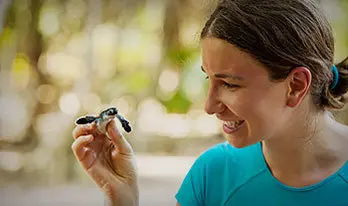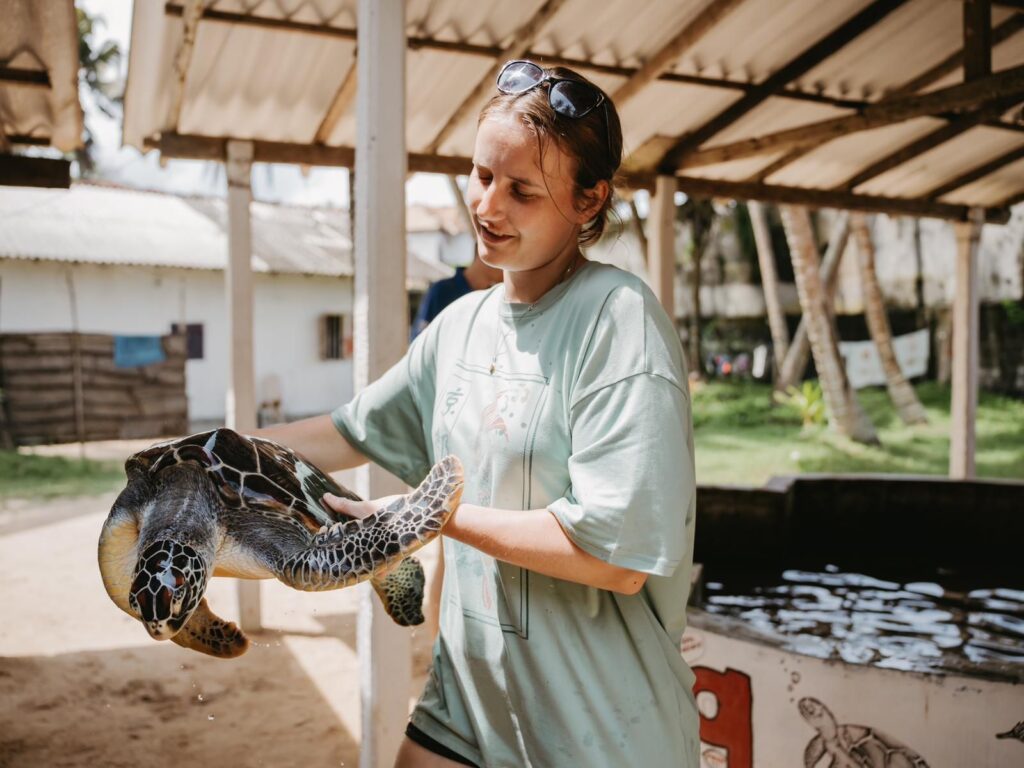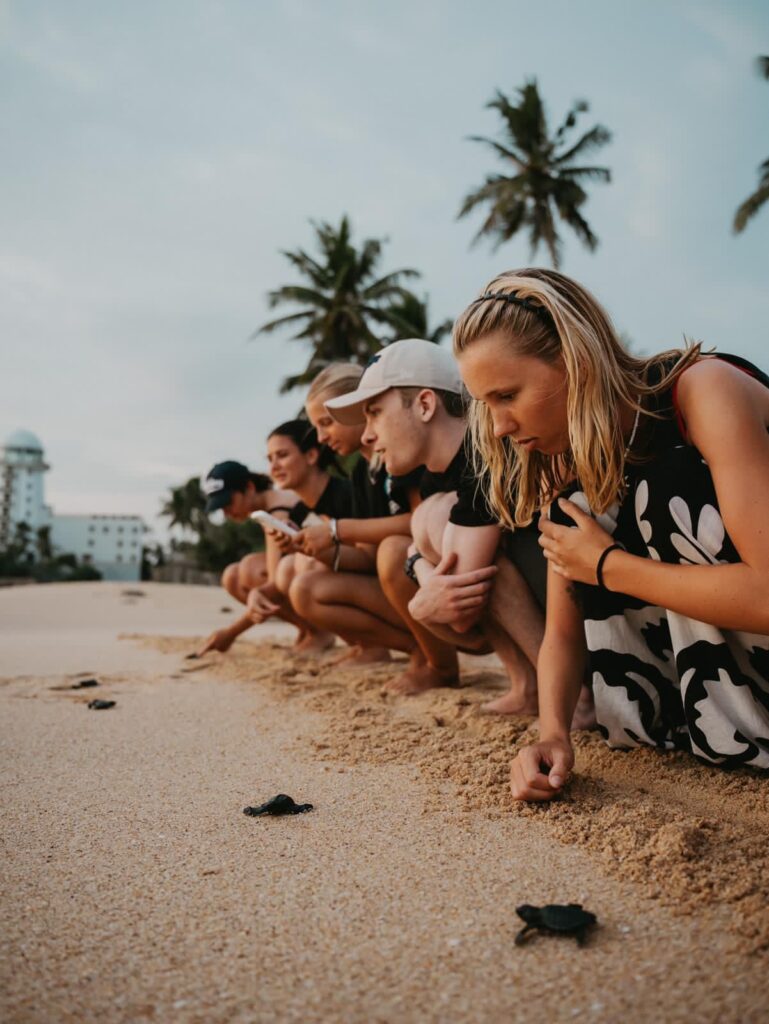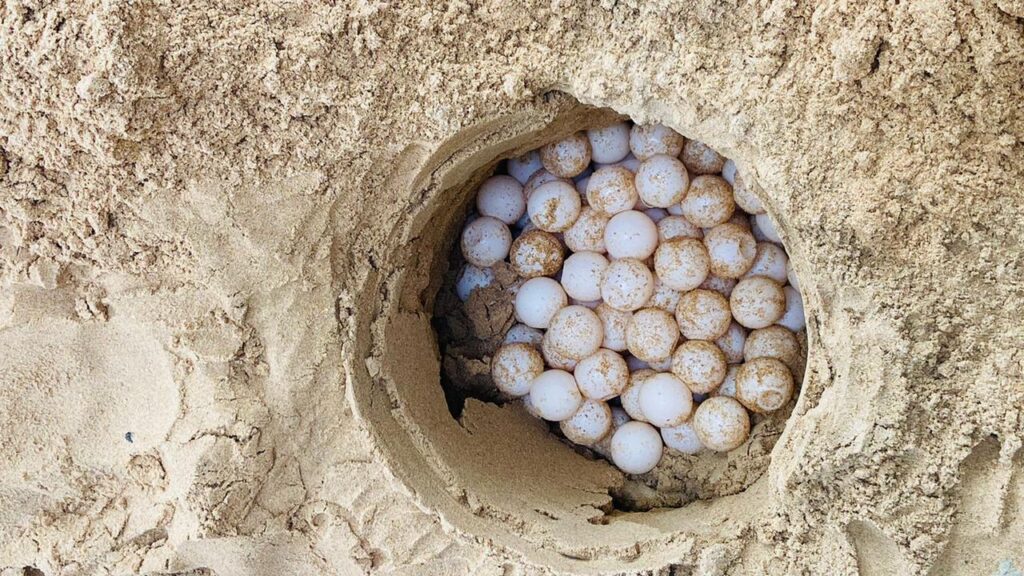Our Sea Turtle Conservation Project contributes to the UN’s development goal number 14 – Life Below Water. We protect and rehabilitate sea turtles whilst also helping at community development projects. Many species of turtles are under threat and at risk of becoming endangered, which is why our conservation efforts are so important. We also work to raise awareness of plastic pollution, care for injured and disabled turtles and release freshly hatched babies back into the wild, safe from natural risks and local poachers



Sea Turtles in Sri Lanka face several threats. Many turtles are often found in fishing nets and many have lost limbs and are no longer able to survive in the wild. We care for these disabled turtles at our sanctuary. Plastic pollution is becoming a huge problem worldwide and our turtle conservation volunteers aim to fight the battle against this environmental
catastrophe. Female turtles will only lay their eggs on beaches that are safe environments to them, it is crucial the area is maintained in order to encourage them to nest. We hold regular local beach cleans to remove litter and dangerous debris. As part of the teams efforts to support coastal conservation, we aim to collect 200 kilograms of rubbish from the beaches every year.
Across Asia, there is an ancient myth that eating turtle eggs and meat will increase your life span. As a result, turtle eggs are sold illegally on the black market. The hatchery provides a safe environment for the turtles to be nested and monitored for conservation. We follow the National Wildlife Department guidelines and release the babies back into the wild. We aim to provide daily care and rehabilitation for the disabled turtles. They have a long term goal to release the healthy turtles back to the wild, as well as protecting turtle eggs that have been stolen by local poachers.


